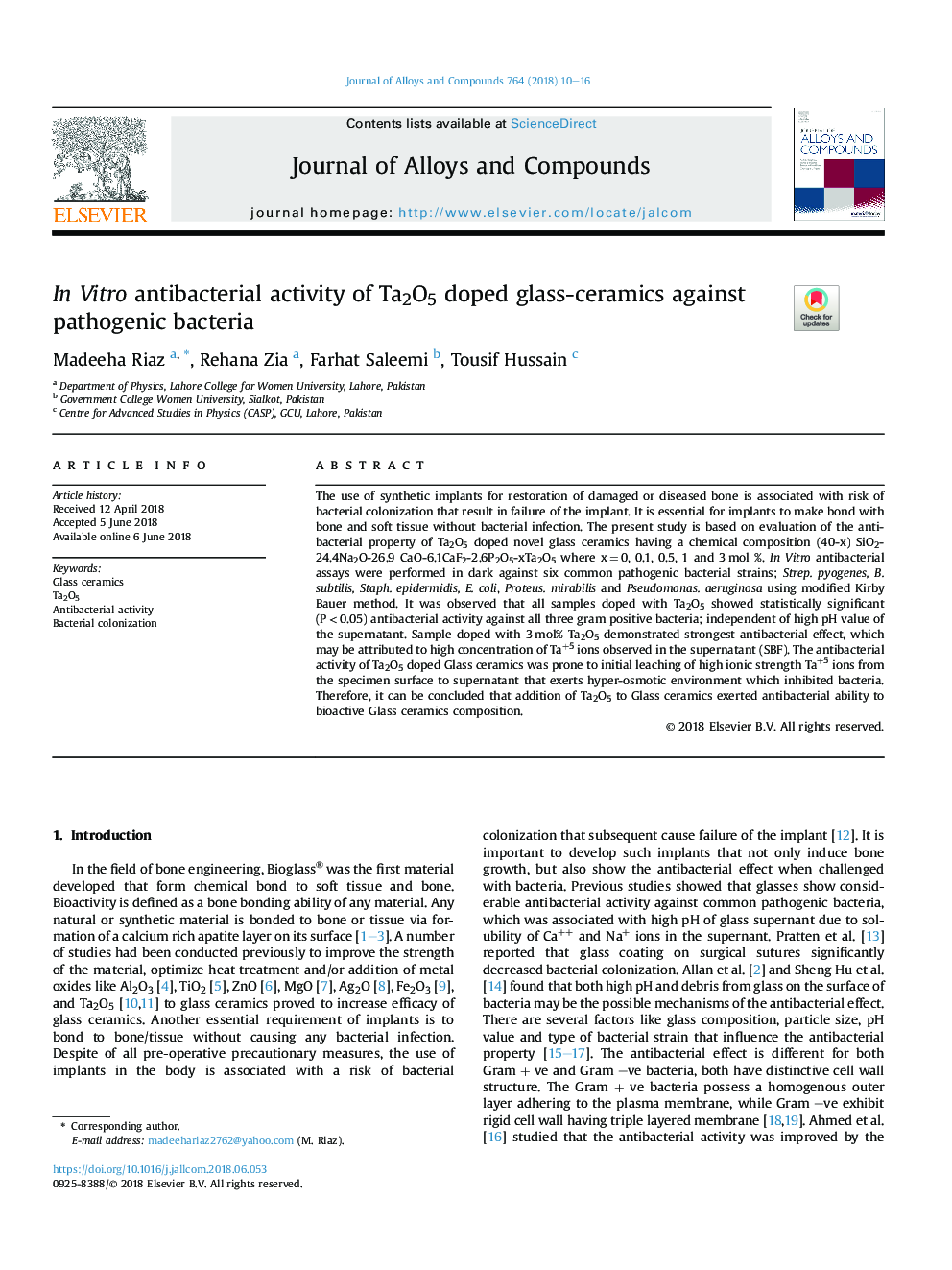| Article ID | Journal | Published Year | Pages | File Type |
|---|---|---|---|---|
| 7990601 | Journal of Alloys and Compounds | 2018 | 7 Pages |
Abstract
The use of synthetic implants for restoration of damaged or diseased bone is associated with risk of bacterial colonization that result in failure of the implant. It is essential for implants to make bond with bone and soft tissue without bacterial infection. The present study is based on evaluation of the antibacterial property of Ta2O5 doped novel glass ceramics having a chemical composition (40-x) SiO2-24.4Na2O-26.9 CaO-6.1CaF2-2.6P2O5-xTa2O5 where xâ¯=â¯0, 0.1, 0.5, 1 and 3â¯mol %. In Vitro antibacterial assays were performed in dark against six common pathogenic bacterial strains; Strep. pyogenes, B. subtilis, Staph. epidermidis, E. coli, Proteus. mirabilis and Pseudomonas. aeruginosa using modified Kirby Bauer method. It was observed that all samples doped with Ta2O5 showed statistically significant (Pâ¯<â¯0.05) antibacterial activity against all three gram positive bacteria; independent of high pH value of the supernatant. Sample doped with 3â¯mol% Ta2O5 demonstrated strongest antibacterial effect, which may be attributed to high concentration of Ta+5 ions observed in the supernatant (SBF). The antibacterial activity of Ta2O5 doped Glass ceramics was prone to initial leaching of high ionic strength Ta+5 ions from the specimen surface to supernatant that exerts hyper-osmotic environment which inhibited bacteria. Therefore, it can be concluded that addition of Ta2O5 to Glass ceramics exerted antibacterial ability to bioactive Glass ceramics composition.
Related Topics
Physical Sciences and Engineering
Materials Science
Metals and Alloys
Authors
Madeeha Riaz, Rehana Zia, Farhat Saleemi, Tousif Hussain,
